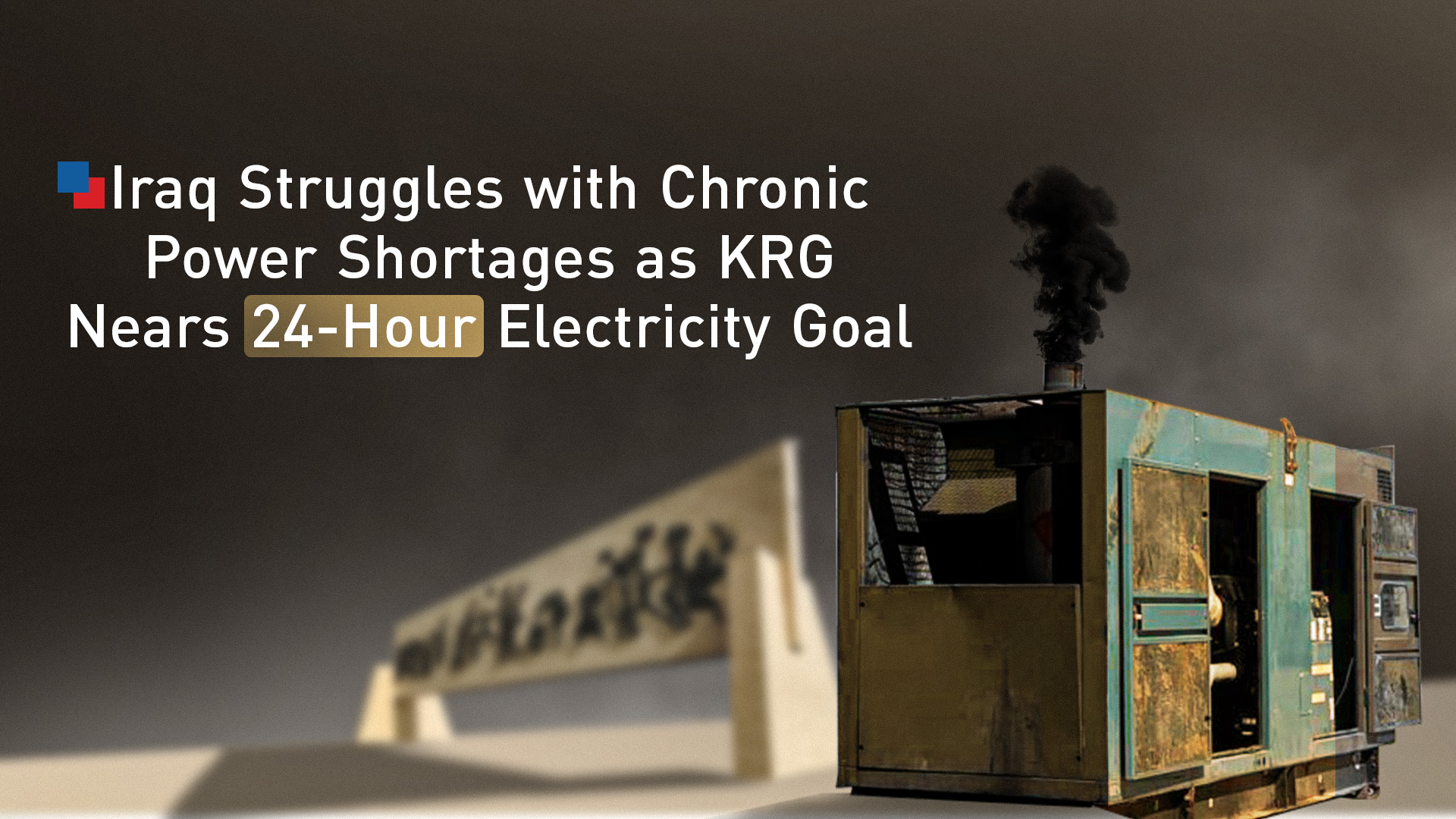Iraq Struggles with Chronic Power Shortages as KRG Nears 24-Hour Electricity Goal
Successive Iraqi governments have signed numerous high-profile contracts with foreign companies to overhaul the country’s electricity network.

ERBIL (Kurdistan24) — As Iraq continues to grapple with chronic electricity shortages despite decades of promises and billions of dollars spent, the Kurdistan Regional Government (KRG) is making steady progress toward providing round-the-clock electricity across the Region by next year.
The KRG’s Runaki program, one of the flagship initiatives of the ninth cabinet, represents a major step forward in modernizing the Region’s energy infrastructure. In addition to ensuring 24-hour power, the program offers major environmental and health benefits by removing thousands of diesel generators from residential areas and restoring the urban beauty of cities and towns throughout the Kurdistan Region.
In stark contrast, the federal government in Baghdad — despite being a state with vast resources and repeated claims of institutional reform — continues to fall short of expectations. Most Iraqi provinces still receive only four hours or less of power each day, forcing citizens to rely heavily on costly and polluting diesel generators.
Successive Iraqi governments have signed numerous high-profile contracts with foreign companies to overhaul the country’s electricity network. Yet the results remain largely unchanged: aging infrastructure, rampant corruption, and poor management continue to leave millions in the dark, particularly during the summer months when demand is at its peak.
Instead of addressing these deep-rooted problems, the Iraqi government and Baghdad province have recently announced a mobile application, MyGenerator, designed to manage payments for diesel generators electronically. Officials claim the app will provide information on amp prices and generator operating hours, along with a “Smart Mukhtar” system for registering neighborhood users.
However, critics argue that this move highlights the federal government’s failure to solve the core problem — the lack of reliable national electricity — and its growing dependence on temporary, inefficient fixes.
While Baghdad focuses on regulating diesel generator payments, the KRG is moving in the opposite direction: reducing dependency on generators altogether through a comprehensive and forward-looking electricity policy. The KRG has even expressed willingness to extend its successful project model to other parts of Iraq, aiming to help citizens nationwide overcome decades of mismanagement in the electricity sector.
As the contrast widens between the two administrations, the KRG’s progress underscores what effective governance and clear priorities can achieve — while Baghdad’s latest app serves as yet another reminder of promises unfulfilled and opportunities wasted.